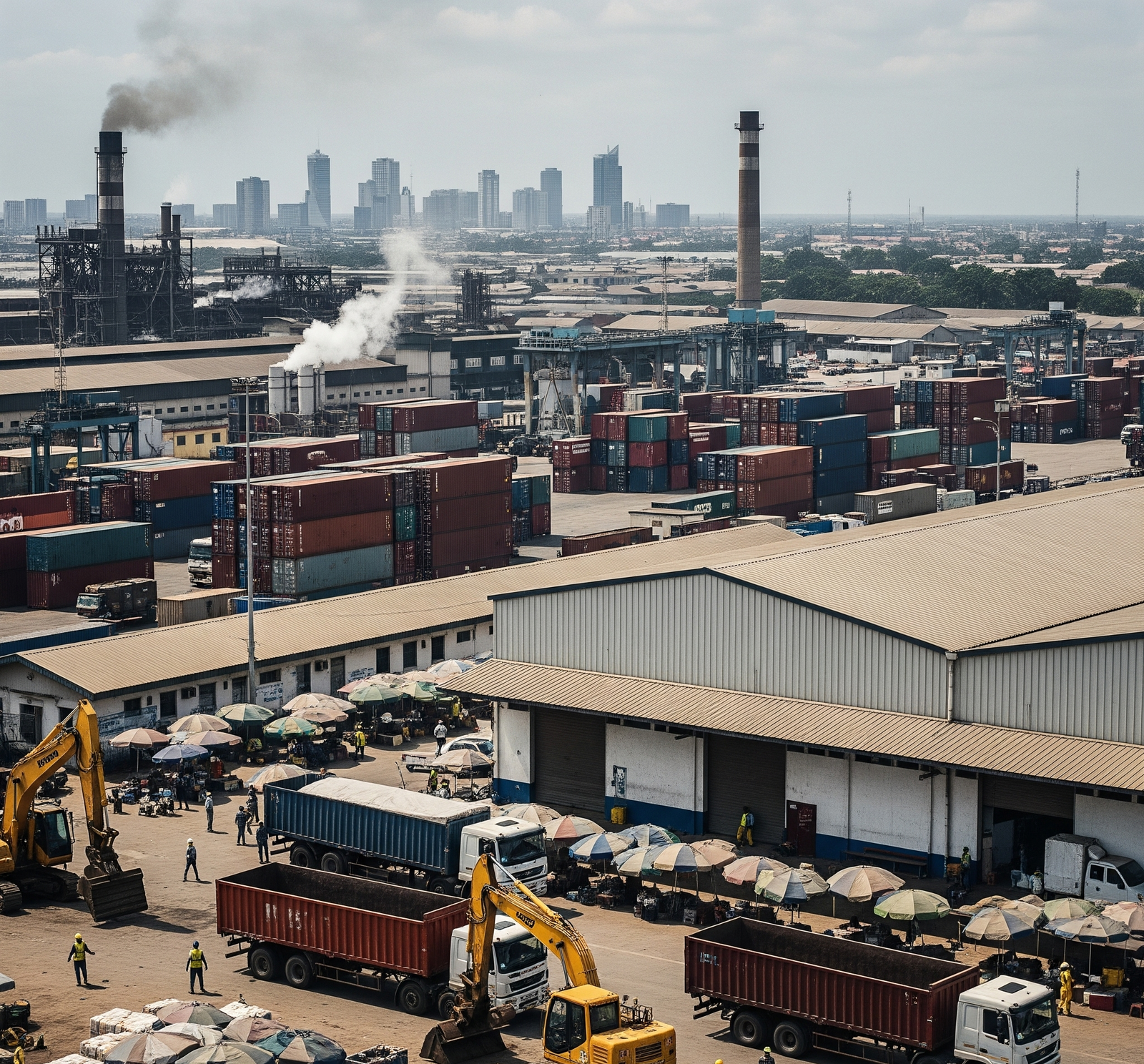
✅ Introduction — Why Importing from China Can Make or Break Your Business
For the past two decades, importing from China has fueled the success of thousands of brands, e-commerce businesses, and global wholesalers. Whether you walk into a retail store or scroll through your favorite online marketplace, there’s a good chance that most products have some link to Chinese manufacturing. The practice of importing from China is essential for many businesses aiming to scale efficiently.
China dominates as the world’s largest manufacturing powerhouse, supplying goods across electronics, textiles, automotive parts, home decor, and countless other categories. The appeal is obvious — low-cost production, massive capacity, and a wide variety of suppliers ready to fulfill virtually any requirement.
But here’s the catch:
Importing from China is not as simple as finding a cheap supplier online and placing an order. Beneath the surface lies a complex maze of:
Understanding the nuances of importing from China can help you avoid pitfalls. Many successful brands have thrived due to strategic practices around importing from China.
- Fake suppliers
- Poor quality control
- Hidden logistics costs
- Cultural misunderstandings
- Weak contracts
And these mistakes are expensive.
In fact, industry reports estimate that more than 35% of small to medium importers lose money on their first 1–3 orders due to avoidable mistakes. Worse yet, some businesses never recover from these errors, losing their entire investment.
💡 “Most importing disasters don’t happen because China is unreliable. They happen because importers don’t know the rules of the game.”
In this in-depth guide, you will learn: ✅ The 5 most common mistakes importers make
✅ Real-world examples of costly errors
✅ Actionable solutions for each mistake
✅ How ZikoSwift helps you eliminate risks and import smoothly
By the end of this article, you’ll be able to avoid common pitfalls and confidently manage your China import strategy like a professional.
✅ Mistake #1 — Falling for Fake or Fraudulent Suppliers
Being aware of the common mistakes in importing from China can save small to medium importers significant amounts of money.
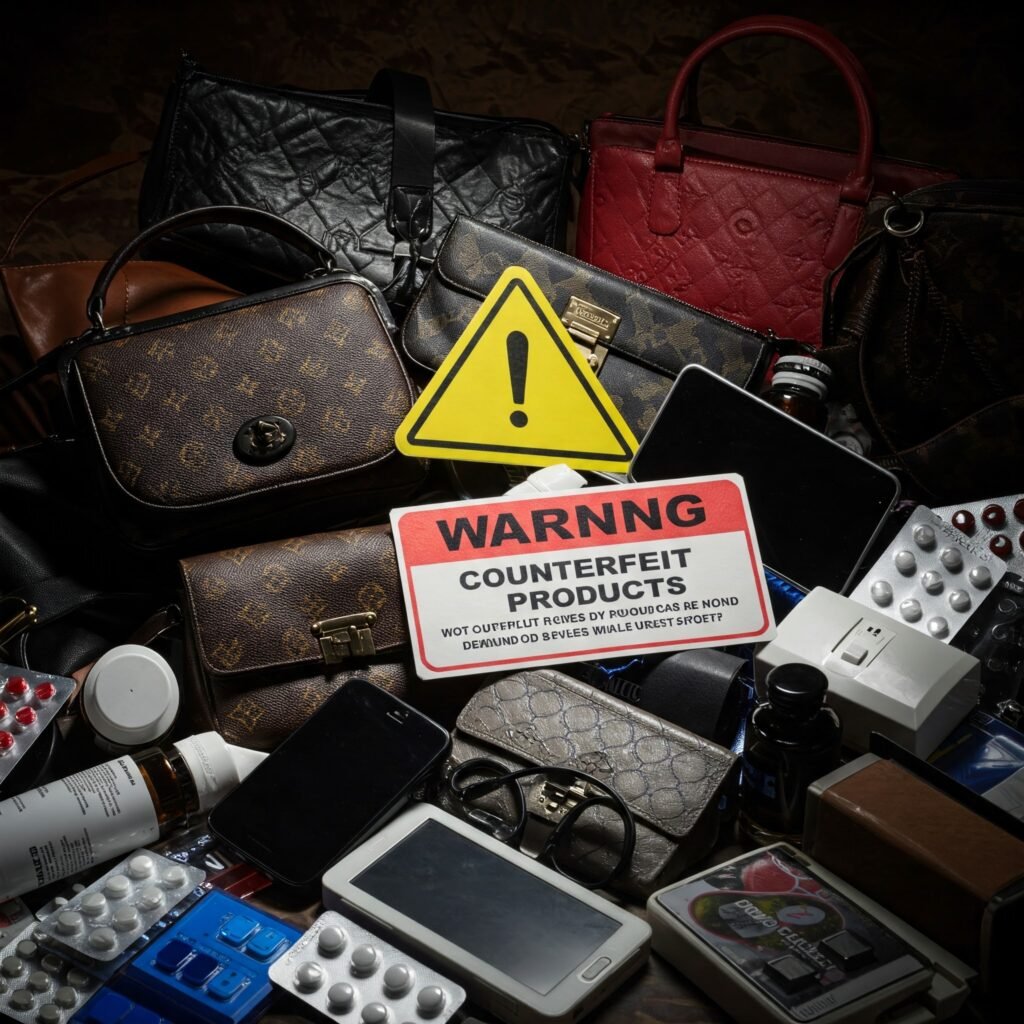
Why This is the Most Common and Dangerous Mistake
Each step of the process of importing from China requires careful attention to detail to avoid setbacks.
With the rise of platforms like Alibaba, Made-in-China, and GlobalSources, thousands of new importers flock to source products without truly knowing who they are dealing with. The problem?
Anyone — including fraudsters — can list products, create professional-looking websites, or claim to be a factory.
It’s crucial to have a comprehensive strategy when importing from China to mitigate risks.
Inexperienced importers often fall for fake suppliers because:
Each mistake encountered while importing from China can be costly, highlighting the importance of awareness.
- The prices look unbeatable.
- The supplier sounds cooperative.
- They present attractive photos and fake certifications.
These fraudulent suppliers are not always easy to spot, especially if you have no experience in supplier verification or don’t have an agent on the ground in China.
❌ Real Examples of Supplier Fraud China Cases:
- Electronics brand received 2,000 power banks filled with sand instead of lithium batteries.
- A U.S.-based furniture importer lost $50,000 after wiring a deposit to a supplier that disappeared.
- A European brand paid for goods with the understanding of CE certifications, only to find out after delivery that the certificates were fabricated.
Why is Supplier Fraud So Easy?
Unlike regulated industries, international sourcing is based heavily on trust.
Chinese factories typically require:
- A 30% to 50% deposit upfront.
- The balance payment before releasing the goods.
Scammers exploit this by:
- Collecting deposits and disappearing.
- Sending non-conforming goods.
- Using fake factory audit reports or borrowed product photos.
Many brands have thrived by mastering the art of importing from China, focusing on quality and reliability.
✅ Signs You’re Dealing with a Fake Supplier
- The supplier refuses to provide a business license or company registration.
- They push for unsecured payment methods (Western Union, Bitcoin).
- Prices are significantly lower than the market average.
- Poor or vague communication.
- Fake certifications when verified with issuing bodies.
Success in importing from China hinges on understanding supplier dynamics.
Investing in quality assurance while importing from China protects your brand’s integrity.
Investing time in understanding importing from China will pay off in the long run.
✅ How ZikoSwift Protects You from Supplier Fraud (Complete Breakdown)
At ZikoSwift, preventing supplier fraud is one of our core missions.
Here’s how we protect you, step-by-step:
- Supplier Verification:
We conduct full background checks, including Chinese business registration, tax records, and ownership verification. - Factory Audits:
ZikoSwift performs on-site factory inspections before you pay a deposit. We verify:- Production capacity
- Staff count
- Machinery
- Quality management systems
- Pre-Screened Network:
We only work with vetted suppliers from our existing database of over 3,000 trusted factories. - Anti-Fraud Reports:
Every factory is graded based on past performance, quality control pass rates, and compliance. - ZikoSwift Trade Assurance:
Your funds are held securely until you confirm product approval.
✅ With ZikoSwift, you don’t have to “hope” your supplier is legit — you’ll know.
✅ Mistake #2 — Ignoring Logistics and Hidden Costs
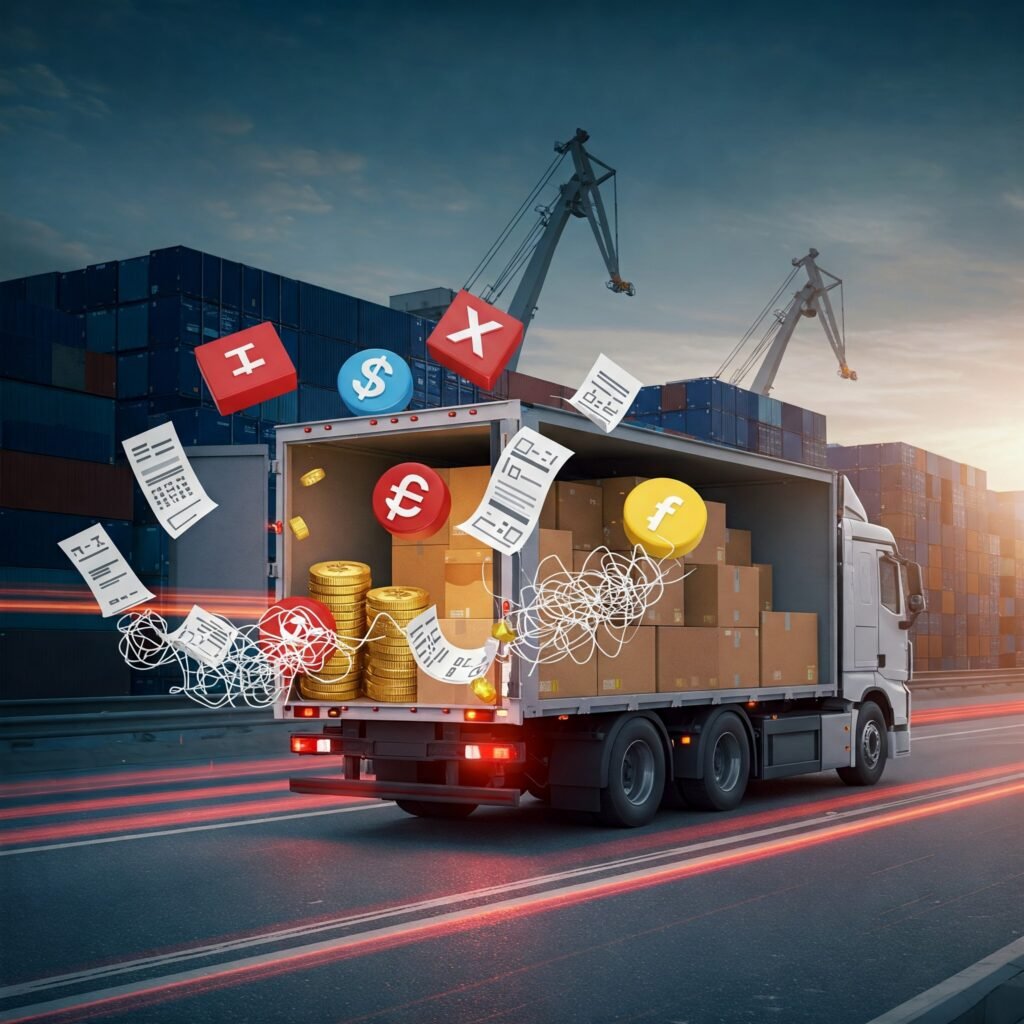
When most people think about importing from China, they focus on:
“How much does the product cost per piece?”
That’s a dangerous oversimplification.
The actual product price is often less than 50% of your total expenses.
If you forget to factor in the true landed cost — including logistics, customs, warehousing, and delivery — you’ll lose money before your products even hit your shelves.
Why Hidden Costs Destroy Profits
New importers often think:
“If I get the item for $2 and sell it for $10, I’m good.”
In reality, the $2 product could end up costing $4, $5, or even $6 when:
- Freight fees surge unexpectedly.
- Your shipment is stuck at customs due to paperwork errors.
- You pay storage fees at the port.
- Currency exchange shifts during payment.
These mistakes wipe out profit margins. Many importers only realize the damage when it’s too late.
✅ Real Hidden Costs Breakdown
| Cost | Explanation |
|---|---|
| Freight (FCL / LCL) | Full Container Load or Less than Container Load costs vary based on volume, weight, and seasons. |
| Duties & Tariffs | Import duties change depending on HS codes. A small misclassification = $$$ extra. |
| Port Charges | Port handling, documentation, terminal handling, and customs clearance fees. |
| Currency Fluctuations | A small USD to RMB rate shift can cause massive unexpected costs. |
| Demurrage & Storage Fees | Goods stuck at port due to missing paperwork can cost $100–$300 per day. |
| Last-Mile Delivery | Trucking from the port to your warehouse is often underestimated. |
✅ Real Case Study:
A UK-based home goods importer ordered $80,000 worth of kitchenware, calculating only the FOB price. After receiving the goods, they realized:
- Total freight and customs clearance added $17,000.
- Storage fees due to incomplete paperwork added another $5,000.
- Unexpectedly, currency fluctuations added $3,500 in additional costs.
Result?
They were forced to sell at near-breakeven pricing.
✅ How ZikoSwift Fixes This for You
- All-Inclusive Costing:
Before you even pay the factory, we prepare a full landed cost analysis, including:- Freight
- Duties
- Port charges
- Last-mile delivery estimates
- Freight Rate Optimization:
ZikoSwift negotiates competitive rates thanks to our strong logistics partner network. - Customs Compliance:
Our team ensures all documentation is perfect to prevent clearance delays. - Currency Risk Management:
We help you lock in favorable rates and avoid sudden fluctuations. - Transparent Reporting:
No hidden charges, no last-minute surprises.
With ZikoSwift, you know the exact total cost before your goods leave the factory gate.
✅ Mistake #3 — Unclear Agreements and Contracts

Too many importers rely on:
- Casual emails.
- Verbal agreements.
- Vague contracts.
Result?
Misunderstandings lead to:
- Wrong products.
- Missed deadlines.
- Legal disputes you can’t win (especially in China).
Why Unclear Agreements Are Dangerous
Chinese business culture differs significantly:
- Contracts are seen as frameworks, not absolute.
- Many suppliers prioritize relationship (guanxi) over written terms.
- Without binding, detailed contracts, you’re at the mercy of the supplier’s interpretation.
Common Scenarios
- You say: “I need blue plastic chairs.”
- They hear: “Any shade of blue, any plastic will do.”
Without:
- Exact color codes (Pantone)
- Material specifications (ABS, PP, HDPE)
- Tolerance limits
- Packaging details
You’re opening the door for:
- Product mismatches
- Lower-grade substitutes
- Delayed shipments
✅ Real Case Study:
An Australian importer ordered galvanized steel construction parts but received painted plastic instead. Why? The contract simply said “steel parts” with no specification sheet.
They lost $60,000 and faced project penalties.
✅ How ZikoSwift Fixes This for You
- Professional, Bilingual Contracts:
We draft contracts in both English and Chinese with:- Detailed product specs.
- Penalties for delays or defects.
- Clear delivery timelines.
- Specification Sheets:
Every order comes with a tech pack:- Measurements
- Colors
- Materials
- Compliance requirements
- Intellectual Property Protection:
We ensure your designs, molds, and brand assets are protected legally in China. - Supplier Alignment:
We negotiate and sign all contracts directly with suppliers, ensuring they understand and accept every point.
With ZikoSwift, you’re backed by enforceable agreements, not “empty promises”.
✅ Mistake #4 — Skipping or Rushing Quality Control
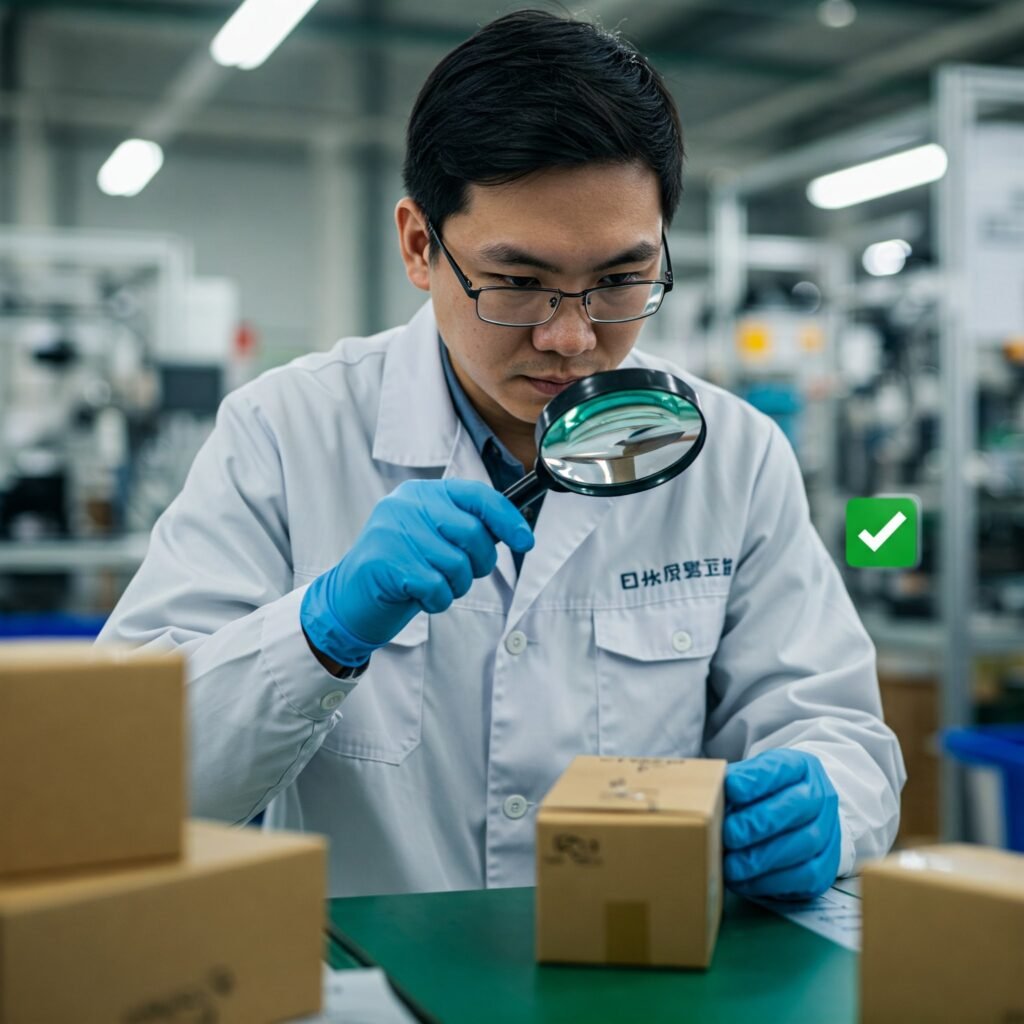
This is one of the most common reasons importers face:
- Refund demands
- 1-star reviews
- Customs seizures
- Safety recalls
No matter how much you trust your supplier, skipping quality control in China is a rookie mistake.
✅ Why QC is Non-Negotiable
Every factory has good days and bad days.
Even honest suppliers make mistakes:
- Wrong raw materials
- Poor workmanship
- Staff errors
- Rushed production
You only discover these mistakes after the goods land if you don’t do QC at the source.
✅ Types of Quality Control You Must Do
- Pre-Production Inspection (PPI):
Prevent defects at the sample stage. - During Production Inspection (DPI):
Catch issues while 30-50% of production is complete. - Pre-Shipment Inspection (PSI):
Final inspection to check quantity, quality, packaging, and labeling. - Container Loading Supervision (CLS):
Ensure only approved products are loaded.
✅ Real Case Study:
A U.S. toy brand skipped pre-shipment inspection.
When the goods arrived:
- Paint levels exceeded EU chemical safety limits.
- Customs seized the shipment.
- The company lost $200,000 and had to manage a recall.
✅ How ZikoSwift Handles QC for You
- Full Inspection Service:
We offer multi-stage QC by certified inspectors. - Live Video Reports:
See real-time footage from the factory during inspection. - Detailed QC Reports:
Get inspection photos, results, and recommendations. - Corrective Action Support:
We help fix issues before goods are shipped.
With ZikoSwift’s QC, you sleep peacefully knowing your goods meet your quality standards.
✅ Mistake #5 — Underestimating Cultural & Communication Barriers

Chinese and Western cultures operate differently in business.
Common pitfalls:
- Misunderstanding “yes” as actual agreement.
- Overlooking Chinese New Year or other factory shutdown periods.
- Making assumptions due to poor translations.
✅ Cultural Nuances That Lead to Costly Mistakes
| Western Assumption | Chinese Reality |
|---|---|
| “Yes” means “Yes” | Sometimes “Yes” means “I hear you” but NOT “I agree”. |
| Deadline = Fixed | Deadlines are often negotiable unless clearly reinforced. |
| Silence = OK | Silence may indicate a problem that they hesitate to communicate. |
✅ Case Study
A fashion retailer missed the entire summer collection season because the factory quietly delayed production during Chinese New Year.
✅ How ZikoSwift Fixes This
- Bilingual Project Managers:
We handle all communications on your behalf. - Production Calendar:
We align your timelines with Chinese holidays and supplier capacity. - Cultural Interpretation:
We tell you what the supplier really means, not just what they say. - Relationship Management:
In China, good relationships get you better prices and priority service.
ZikoSwift knows how to build Guanxi on your behalf.
✅ ZikoSwift’s Full Importing Solution Blueprint
- Initial Consulting:
We analyze your import needs, product specs, and market. - Supplier Research & Validation:
You get verified, audited suppliers only. - Contracting & Negotiation:
We create rock-solid bilingual contracts. - Production Management:
We monitor production progress with factory visits and reports. - Full Quality Control:
Multi-phase inspections by trained QC teams. - Shipping & Customs:
Logistics support with transparent costing and reliable freight partners. - Post-Shipment Support:
Assistance with after-sales claims, disputes, and re-orders.
✅ Conclusion
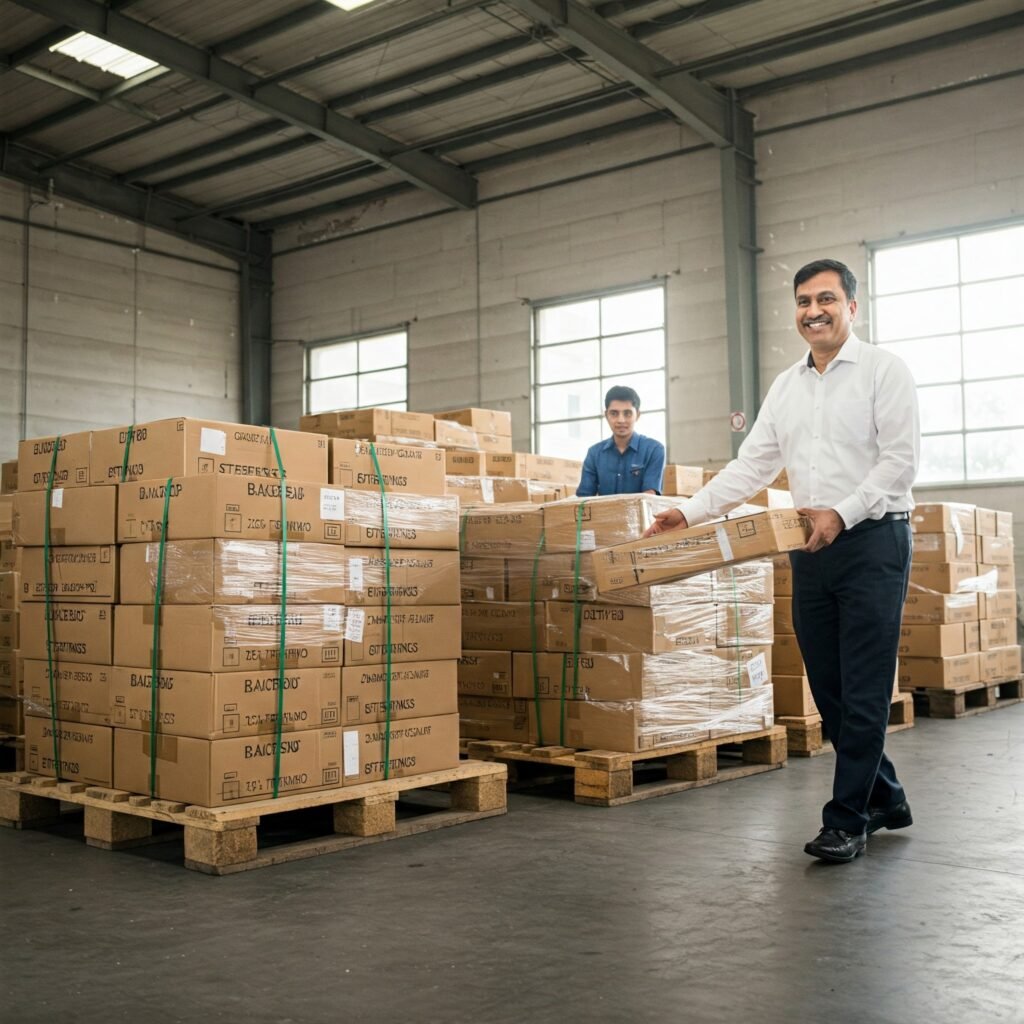
Importing from China is one of the smartest ways to scale your business — if done right.
The five mistakes outlined above account for:
- Most failed import ventures.
- Lost capital.
- Damaged brand reputation.
- Sleepless nights.
But these mistakes are avoidable.
When importing from China, it’s vital to ensure that all agreements are crystal clear to avoid misunderstandings.
Effective communication is key in importing from China to facilitate smoother transactions.
Understanding cultural differences is crucial when importing from China.
Our experts specialize in importing from China to help you navigate these complexities.
In conclusion, importing from China presents vast opportunities for growth, provided you approach it wisely.
By partnering with experts, you can streamline your importing from China process for optimal results.
With the right sourcing partner — like ZikoSwift — you can navigate: ✅ Supplier verification
✅ Contracting
✅ Logistics
✅ Quality control
✅ Cultural management
and focus on growing your business, not fighting import battles.
💼 Ready to import safely, smoothly, and profitably?
Contact ZikoSwift today for a free, no-obligation consultation.
-
Top 5 Powerful Nigerian Manufacturing States
Introduction: The Rise of Nigerian Manufacturing States Nigeria’s manufacturing sector is undergoing a powerful transformation — one driven not just by multinational giants but also by the steady rise of local industries and regional production zones. Across the country, several Nigerian manufacturing states are emerging as economic engines, powering industrial growth and shaping the future…
-
How to Find Reliable Nigerian Suppliers in 2025
Learn how to find and work with reliable Nigerian suppliers using ZikoSwift’s trusted B2B tools and expert sourcing tips.
-
Top 7 Hidden Challenges Manufacturers Face in Nigeria — Exposed
Introduction: Why It’s Important to Talk About the Challenges Manufacturers Face in Nigeria Nigeria’s manufacturing industry has massive potential. With a growing population, increasing demand for locally-made products, and rising interest in African trade, the sector could become a major driver of the economy. From food processing and textiles to machinery and building materials, Nigerian…

